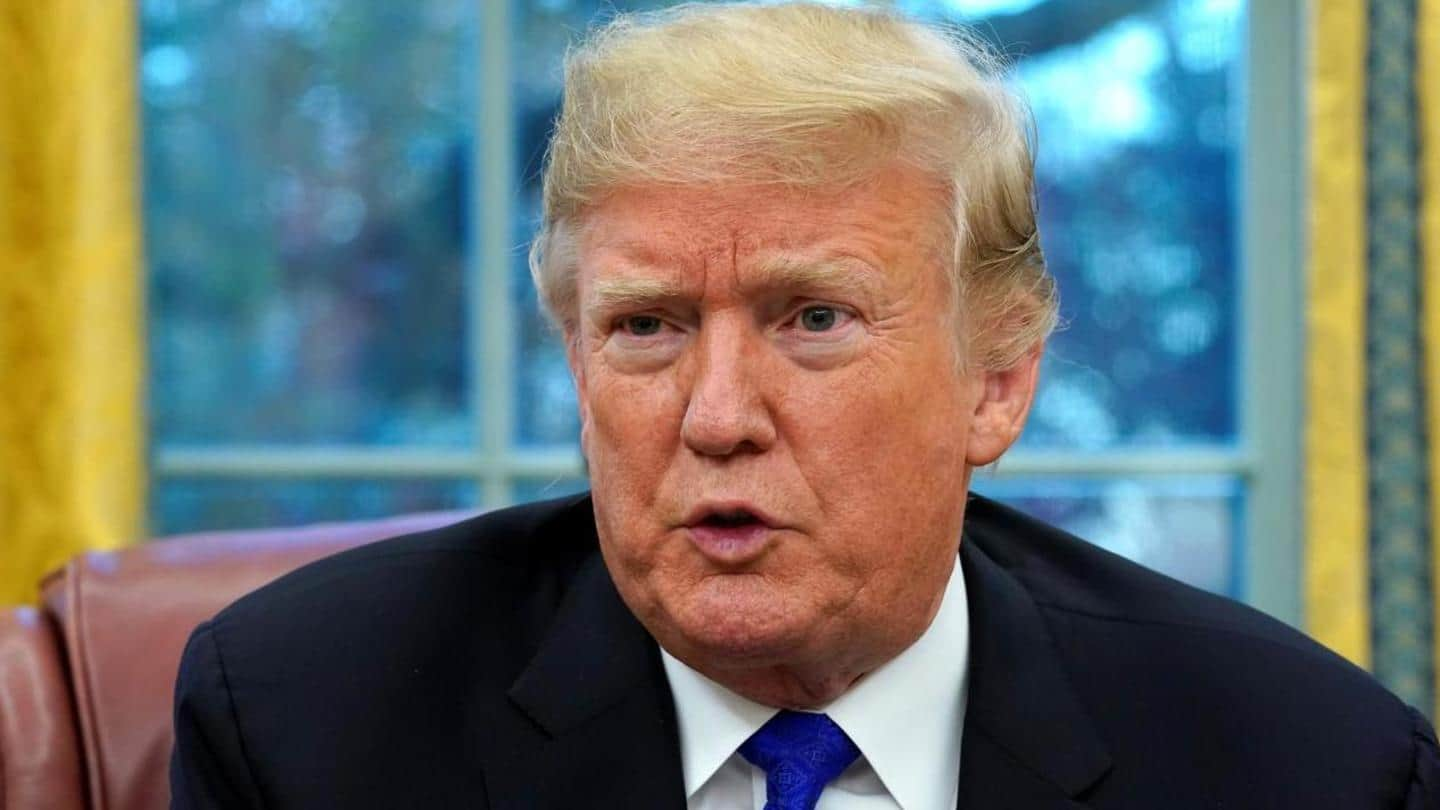
Trump suggests delaying 2020 US Presidential elections over mail-in voting
What's the story
United States President Donald Trump on Thursday suggested delaying the upcoming Presidential elections until people can "properly, securely and safely" vote.
The 2020 US Presidential elections are due in November, but several states are planning to make postal voting easier due to public health restrictions imposed to stem the spread of the coronavirus.
The US is notably the world's worst-hit nation in the outbreak.
Details
Trump calls mail-in voting a 'catastrophic disaster'
In a series of tweets on Thursday, Trump said that mail-in voting "is already proving to be a catastrophic disaster."
He said that the Democrats know that mail-in voting is more susceptible to foreign influence and "there's no accurate count."
Trump said universal mail-in voting will lead to the most "inaccurate and fraudulent elections in history."
Quote
'Delay election until people can properly, securely, and safely vote?'
Trump tweeted, "With universal mail-in voting (not absentee voting, which is good), 2020 will be the most inaccurate and fraudulent election in history. It will be a great embarrassment to the USA. Delay the election until people can properly, securely, and safely vote?"
Twitter Post
You can view the tweet here
With Universal Mail-In Voting (not Absentee Voting, which is good), 2020 will be the most INACCURATE FRAUDULENT Election in history. It will be a great embarrassment to the USA. Delay the Election until people can properly, securely and safely vote???
— Donald J. Trump (@realDonaldTrump) July 30, 2020
Background
6 states planning to hold all-mail ballot elections
In light of the coronavirus outbreak, the US states of California, Utah, Hawaii, Colorado, Oregon, and Washington were planning to hold "all-mail" ballot elections.
These six states will automatically send postal ballots to all registered voters, which will be sent back or dropped off on election day.
Half of US states also allow any registered voter to cast postal votes on request.
Criticism
Trump has repeatedly rallied against mail-in ballots
Trump has repeatedly spoken against mail-in ballots. His claims once got Twitter to flag his tweets.
Earlier, Trump had said there's a risk of "thousands and thousands of people sitting in somebody's living room, signing ballots all over the place."
Critics say that with mail-in voting, there are risks of people voting more than once, but studies have found no evidence of widespread fraud.